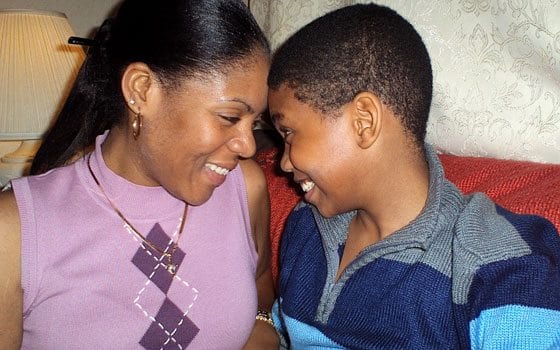
After Jacqueline Williams-Hines found out that her son was autistic, she wrote a poem to help process her emotions and better understand how to deal with the diagnosis.
Nearly a decade later, the Springfield-based author is still using the written word to demystify the disorder, penning books intended to help kids understand how to play and interact with youngsters who may seem a little different.
Back in March, Williams-Hines — a 42-year-old full-time medical transcriptionist who writes poetry and short stories on the side — released the second children’s book in her “No Small Victories” series. Her 11-year-old son Joshua, who was diagnosed with autism at the age of two and a half, is the inspiration behind the series, as well as its star. The first book is titled “Joshua and the Startabulous Dream Maker,” and the newest is “The Adventures of Suther Joshua from Planet Yethican.”
Each book focuses on one aspect of autism, according to Williams-Hines, and is intended to educate Joshua’s peers on the disorder, help increase understanding of how autistic children behave and why they do so, and break down the stereotypes attached to the condition.
The stories grow out of Joshua’s struggles, which started about a decade ago.
“He presented typical toddler behavior until about two,” Williams-Hines said in a recent telephone interview. “An aunt actually brought it to my attention that Joshua wasn’t talking as much as I thought he was. Sometimes parents don’t pick it up right away that their children do not speak typical of their age, and others notice instead.”
After Joshua’s symptoms worsened — he began “losing words and then became totally nonverbal,” Williams-Hines recalled — she brought him to his pediatrician, who recommended that Joshua see a pediatric neurologist. After examining him, the specialist gave Williams-Hines and her husband Robert the diagnosis: Joshua had autism.
“Initially I was devastated,” said Williams-Hines. “I went through a deep depression. One thing I found [that is] universal with other mothers is that we go through a strong sense of guilt that I don’t think fathers typically share. As a mother, we don’t know what causes autism and we begin picking ourselves apart, saying, ‘What if I rested more or ate differently?’ Fathers go through a stage of denial.”






